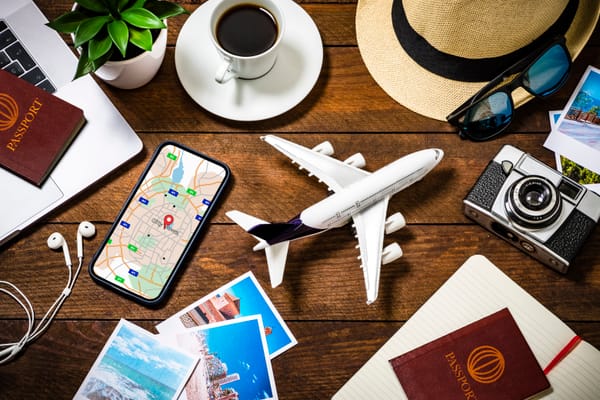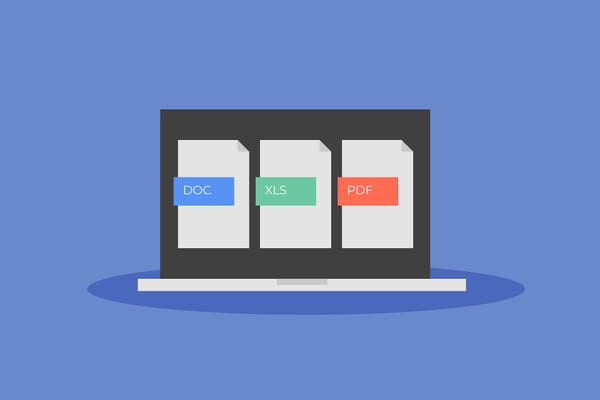How Entrepreneurs Can Save on Business Trips

Business trips are more than just boarding a plane or checking into a hotel—they're part of building and growing a business. From meeting clients in person to attending industry events and closing deals, these trips offer opportunities to strengthen relationships and open doors to new ventures.
However, the costs of business travel can add up quickly and many entrepreneurs try to find ways to manage these expenses.
And if that wasn't enough, a cyber incident—like stolen data or hacked devices—can disrupt everything, turning a productive trip into a costly nightmare. Striking a balance between productivity, personal well-being, and cybersecurity is key. With thoughtful planning, smart tools, and a strong focus on protecting your data, entrepreneurs can ensure their business trips are smooth, cost-effective, and secure.
Did you know?
- It's estimated that US travelers will take 447M domestic business trips in 2024.
- Business travelers typically take about 1.8 trips monthly.
- Business travelers typically spend $1,018 per trip.
Source: photoaid.com
Leverage Technology for the Best Deals
Apps can take the hard work out of finding affordable flights and accommodations. Here's a list of some of the best apps entrepreneurs can use to save money while planning business trips:
Skyscanner
Skyscanner is a powerful travel search engine that compares prices across airlines and travel agencies. With features like flexible date searches and the "Search Everywhere" option, it's perfect for finding budget-friendly flights to any destination.
Google Flights
Google Flights provides a clean, user-friendly interface with helpful tools like price tracking, fare alerts, and a map view to explore destinations within your budget. It even predicts the best times to book to help you maximize savings.
Hopper
Hopper uses data analysis to predict flight prices and advises you on the ideal time to book. The app sends notifications about price drops and even estimates when fares are likely to increase. It's like having a personal travel assistant keeping an eye on your budget.
Kayak
Kayak aggregates data from various travel sites, making it easy to compare flight prices, hotel rates, and car rentals. It features flexible date searches and filters for layovers, airlines, and other preferences. Kayak doesn't handle bookings directly but redirects you to the best deals.
Expedia
Expedia is a versatile travel platform where you can book flights, accommodations, car rentals, and activities. It often bundles services for added savings and provides access to exclusive member prices. It's a reliable, all-in-one tool for business travel planning.
Booking.com
For accommodations, Booking.com offers everything from hotels and apartments to hostels, often at competitive rates. With flexible booking options and user reviews, it's a go-to platform for finding the right place to stay.
Airbnb
Airbnb connects travelers with hosts offering unique stays, such as private homes or single rooms, which can be more affordable and personalized compared to traditional hotels.
HotelTonight
HotelTonight is the go-to app for last-minute travelers, offering incredible deals on unsold hotel rooms. Whether your plans change unexpectedly or you're booking a spontaneous trip, the app connects you with discounted rates at quality hotels. Its user-friendly interface and quick booking process make it a lifesaver for spontaneous travelers, unexpected trips or plan changes.
Agoda
Known for its frequent promotions and competitive prices, Agoda provides a wide selection of accommodations worldwide, particularly in Asia. It's an excellent choice for budget-conscious entrepreneurs.
Momondo
Momondo offers a visually intuitive interface to compare flight prices across multiple dates and destinations. Its "Flight Insight" feature gives detailed data on pricing trends, helping you choose the best time to book.
TripCase App
TripCase simplifies travel planning by automatically creating a detailed itinerary for your trip. Just forward your travel confirmation emails—flights, hotels, car rentals, or restaurant reservations—and the app organizes everything into a single, easy-to-access timeline. It's perfect for staying on top of your plans without juggling multiple documents. You can even add details manually to customize your itinerary further, ensuring nothing gets missed.
Related: 10 Tips to Help You Avoid Online Scams When Booking Your Holiday
Your Devices and Data While Traveling—Save Money by Preventing Costly Cyber Incidents
Safeguarding your devices and data during a business trip is not only about security; it's also a smart way to save money. A compromised device or stolen information can lead to costly downtime, lost opportunities, or even financial fraud.
Here are practical steps to safeguard your digital assets while traveling:
1. Use a Password Manager
Keeping track of multiple passwords can be a challenge, but a password manager like Bitdefender Password Manager makes it simple and secure. It generates and stores complex passwords for all your accounts, ensuring that even if one password is compromised, the others remain safe.
2. Stay Scam-Savvy: Spot and Avoid Scams
Travelers are often prime targets for scams. Whether it's a phishing email, fake booking confirmation, or an overly convincing message requesting payment, staying vigilant is key. Familiarize yourself with common travel scams and use tools like Bitdefender Scam Copilot to spot red flags before falling victim.
Related: Why Small Business Owners Fall For Scams: 10 Reasons and Solutions
3. Use a VPN on Public Wi-Fi
Public wi-fi networks, such as those found in airports, hotels, and coffee shops, are often insecure. A Bitdefender VPN encrypts your internet connection, protecting your data from hackers who may be on the same network.
Many smartphones automatically connect to known or open wi-fi networks, which can expose your device to malicious hotspots. So you may want to disable the Auto-Connect feature for wi-fi networks. Alternatively, you can set up your Bitdefender VPN to connect automatically at system startup and before accessing public wi-fi.
4. Secure Booking Apps with Strong Passwords and 2FA
Review the privacy settings of any travel or booking apps you use, make sure they are protected with strong, unique passwords, and enable two-factor authentication (2FA) for an added layer of security. This makes it significantly harder for unauthorized users to access your accounts, which most likely store your card details.
Also, review and restrict app permissions on your smartphone before traveling. Many apps request access to your location, contacts, or camera unnecessarily. Limiting permissions reduces the risk of data exposure.
5. Activate Remote Wipe Features on Your Devices
Losing a device while traveling can be devastating, especially if it contains sensitive business information and your customers' data. Enable remote wipe functionality on all your devices, including laptops, smartphones, and tablets. This allows you to erase all data remotely if your device is lost or stolen, ensuring your information doesn't fall into the wrong hands.
6. Back Up Your Data Before Your Trip
Before your trip, create a secure backup of all essential files. Use cloud services or external drives to ensure your data can be restored quickly if something happens to your primary device.
7. Keep Software Updated
Outdated software can be a gateway for hackers. Ensure all your devices, apps, and antivirus software are updated before you travel. Automatic updates can also help patch vulnerabilities you might otherwise overlook.
8. Limit Sensitive Information on Devices
Travel light when it comes to data. Remove unnecessary sensitive files or apps from your smartphone and other devices before the trip. If you must carry sensitive data, encrypt it for added protection.
9. Protect Your Smartphone
Smartphones are indispensable for business trips but are often overlooked when it comes to security. Take these steps to safeguard yours:
· Lock Your Device: Use a strong PIN, password, or biometric authentication (fingerprint or face recognition). Avoid simple patterns or short passcodes.
· Install a Mobile Security App: Apps like Bitdefender Mobile Security can protect your smartphone against malware, phishing attacks, and unauthorized access.
· Enable Remote Tracking and Wipe Features: Bitdefender Mobile Security can help you locate your phone and remotely erase data if it's lost or stolen.
· Turn Off Bluetooth and Public Sharing: Hackers can exploit Bluetooth connections or open sharing features. Keep these turned off when not in use.
· Beware of Public Charging Stations ("Juice Jacking"). Public USB charging stations, often found in airports or coffee shops, can be tampered with by hackers to steal data or install malware on your smartphone. Always use your own charger and a wall outlet, or invest in a USB data blocker, which allows charging while blocking data transfer.
10. Invest in Bitdefender Ultimate Small Business Security
If you use multiple devices during your trip (e.g., smartphone, laptop, tablet), consider an all-in-one security solution that offers real-time protection, email protection, scam detection, password management, unlimited VPN, and a digital identity monitoring service for all your connected devices.
Bitdefender Ultimate Small Business Security is here to help you with comprehensive protection designed specifically for small businesses. Check out the plans here.
FAQs
How can I control business travel costs?
You can spend less by careful planning and making smart decisions. Booking flights and accommodations early can help lock in better prices and avoid last-minute surges. Frequent flyer miles, hotel rewards programs, and travel credit cards are excellent tools to offset expenses, especially for frequent travelers. Choosing budget-friendly options like economy flights, mid-range hotels, or even short-term rentals can also significantly reduce costs without sacrificing comfort. For added savings, consider bundling bookings through platforms like Expedia, which often provide discounts when you combine flights, hotels, and car rentals.
What is the most cost-effective way to book accommodations for a business trip?
Booking platforms like Booking.com and Agoda offer a wide range of options with competitive pricing, making them ideal for comparing deals. For last-minute trips, apps like HotelTonight can provide discounted rates on unsold hotel rooms. If you prefer a more personal touch or need amenities like a kitchen, consider alternative lodging options such as Airbnb. Loyalty programs for hotels can also help you earn points and receive discounts or perks for future stays.
How can I secure my devices before a trip?
Secure your devices before a business trip to protect sensitive data and maintain productivity. Start by using a VPN to encrypt your internet connection when accessing public wi-fi networks, commonly found in airports and hotels. Ensure all your devices have strong passwords, two-factor authentication (2FA), and remote wipe capabilities enabled, so you can safeguard or erase data if a device is lost or stolen. Avoid using public USB charging stations, which can be exploited for malware attacks; instead, bring your own charger or a USB data blocker. Keep your software updated with the latest security patches to minimize vulnerabilities.
tags
Author
Cristina is a freelance writer and a mother of two living in Denmark. Her 15 years experience in communication includes developing content for tv, online, mobile apps, and a chatbot.
View all postsRight now Top posts
Outpacing Cyberthreats: Bitdefender Together with Scuderia Ferrari HP in 2025
March 12, 2025
Streamjacking Scams On YouTube Leverage CS2 Pro Player Championships to Defraud Gamers
February 20, 2025
How to Identify and Protect Yourself from Gaming Laptop Scams
February 11, 2025
Your Device ‘Fingerprint’ Will Go to Advertisers Starting February 2025
December 24, 2024
FOLLOW US ON SOCIAL MEDIA
You might also like
Bookmarks







